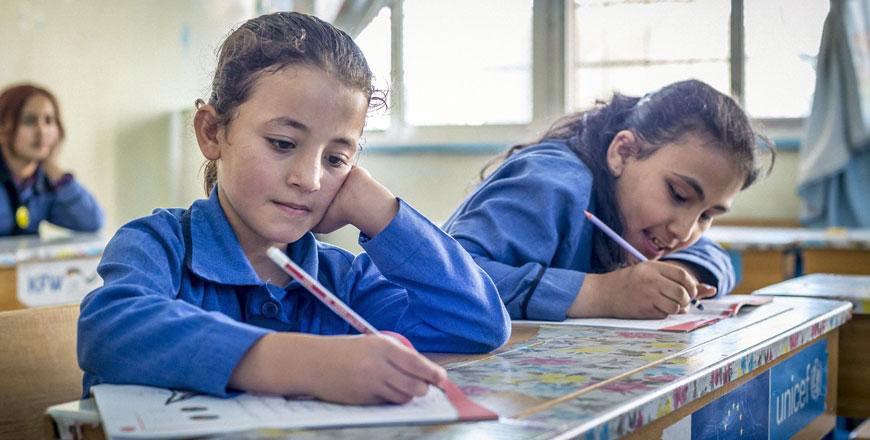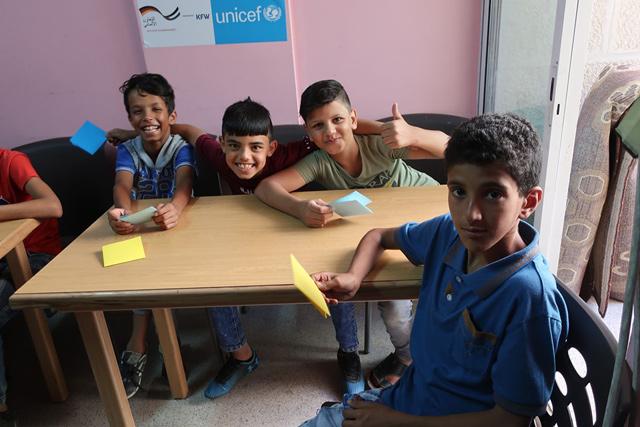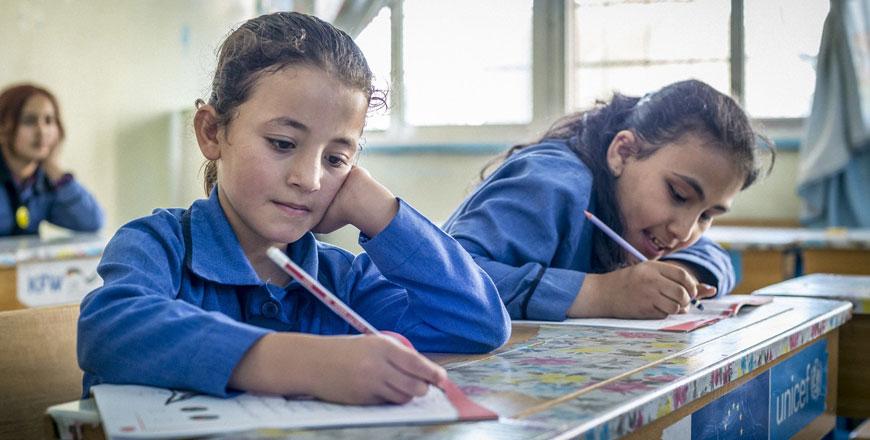You are here
Many left in limbo after cuts to UNICEF education programme
By Elizabeth Turnbull - Jul 01,2019 - Last updated at Jul 01,2019
AMMAN — In 2013, Abu Mohammad fled Daraa, Syria, to find a new life in Amman. While no longer in Syria, Abu Mohammad said he remains concerned for his three children.
Abu Mohammad’s children — in the sixth, fourth and first grade — are some of the tens of thousands of children who stopped receiving assistance from UNICEF’s cash assistance programme “Hajati” (my needs in Arabic), after the it experienced funding constraints in 2018, according to a recent UNICEF report.
The programme provides vulnerable children of all nationalities registered in double shift schools with JD20 per month to help with their education and protect against child labour and early marriage. However, because of a decrease in funding, the programme’s beneficiaries plummeted from 55,000 in 2018, to 10,000 during the 2018-19 academic year, the report read.
“The money I received from the programme helped me buy stationery bags and sometimes food,” Abu Mohammad told The Jordan Times.
The money he earns from working at a vegetable market barely covers rent, he said. “I hope the programme will resume because it really helped us refugees, especially because we still rely on donations and aid, and the education of our children is very important.”
Abu Mohammad added: “In light of the current circumstances in Syria, we can’t return to our home.”
According to a recent poll by the Carnegie Middle East Centre in Amman, 33 per cent of Syrian refugees said they were certain they would not return to Syria, while 66 per cent said they would only return when stability and security are restored.
Small incomes and displacement means the future of many lie in their education.
“School is a beautiful place to be,” nine-year-old Baylasan said in a UNICEF statement e-mailed to The Jordan Times. “I love my school because I love my teachers, they are really nice. And I want to be a teacher. I think being a good teacher is the only way to get kids to go to school.”
Baylasan is one of six children whose family arrived in Jordan after fleeing Damascus.
“We heard about the Hajati support and they assessed my family’s situation and the children and said that we are eligible to get the support. It was only JD20 per child and although it is not much money, for us every extra dinar makes a difference,” Abdulrahman, Baylasan’s father, said in the statement.
Before Hajati support, the children walked home from school, arriving after dark.
“When I received the money, I started to pay for transport for my children to bring them home after school,” said Abdulrahman. “I believe that the one way out of our situation is by having a good education.”
According to the UNICEF report, more than one in four children who are no longer supported by the programme are now missing school, and 34 per cent of those children are likely to go to bed hungry.
Moreover, their risk of engaging in child labour rises by 26 per cent, compared with children receiving Hajati assistance.
“Our focus now is on the viability of Hajati to ensure the assistance continues for those children who depend on it every month to realise their right to an education,” Ettie Higgins, acting representative of UNICEF Jordan, said in a statement e-mailed to The Jordan Times.
UNICEF requires $1.9 million to continue funding the Hajati programme for 10,000 children this year, according to Higgins.
However, because his family was not one of the 10,000 who received funding after the cuts, Abu Mohammad is still waiting to find out if his children will go back to school in the fall.
“I am worried about the future of my children and their education.”
Related Articles
AMMAN — UNICEF has said that its cash assistance programme “Hajati” has proven to be effective at keeping the most vulnerable children in Jo
AMMAN — Despite continuous funding constraints, the United Nations Children’s Fund’s (UNICEF) Hajati programme has enough funding to help it
AMMAN — Over 4,000 out-of-school Syrian and Jordanian children returned to the formal education system over the past scholastic year through

















